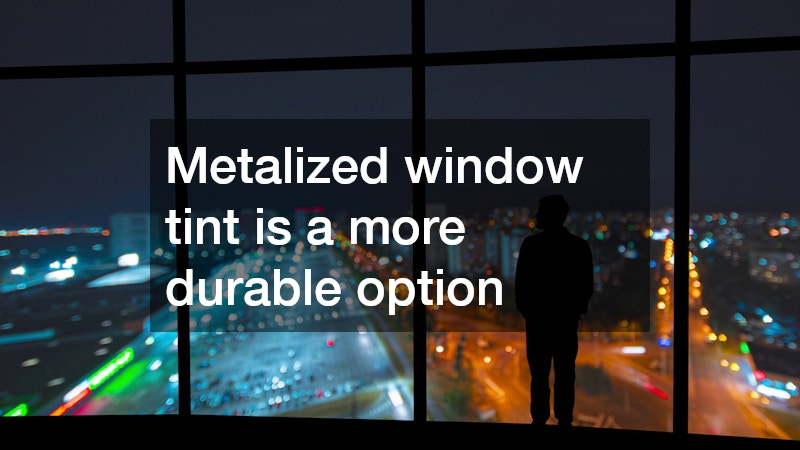If you’ve ever admired the sleek, modern look of tinted car windows or noticed how much more comfortable a room feels when the sun’s harsh rays are softened, you’ve already seen some of the appeal of window tinting. While many people assume tinting is just about aesthetics, the truth is that it offers a wide range of practical benefits that go far beyond appearance. From enhancing privacy to improving energy efficiency, tinting serves multiple purposes for homes, vehicles, and even office spaces.
What are the Benefits of Window Tinting?
Window tinting offers a variety of advantages that make it appealing to homeowners, drivers, and business owners alike. One of the most obvious benefits is the improved privacy it provides. When your windows are tinted, it becomes harder for outsiders to see inside, which not only gives you a sense of security but also allows you to feel more comfortable whether you are at home or driving on the road.
Tinting also reduces glare from sunlight, which is especially important when driving. Sun glare can make it difficult to focus on the road and cause significant eye strain over time. By filtering out intense rays, window tinting helps create a safer and more comfortable environment. In homes and offices, this same benefit makes it easier to work on screens or relax without the constant interruption of harsh light.
Another key advantage is UV protection. High-quality window films can block up to 99 percent of harmful ultraviolet rays. This protection is crucial not only for your skin but also for your belongings. Upholstery, flooring, and furniture can fade and deteriorate when exposed to constant sunlight. A good tint preserves these items and prolongs their lifespan.
Energy efficiency is yet another important benefit. By limiting the amount of heat that enters your vehicle or home, window tinting helps keep spaces cooler. This reduces reliance on air conditioning, leading to lower energy costs and a more environmentally friendly lifestyle. On top of all this, some types of tinting even improve safety. In the event of an accident, certain films can prevent glass from shattering into dangerous shards, offering an additional layer of protection.
What Types of Window Tint are Available?
For beginners, it is important to understand that not all window tints are the same. Dyed window tint is among the most affordable choices. It works by incorporating dye into the film, giving windows a darker appearance while providing modest heat rejection and increased privacy. Though it may fade over time, it is an accessible option for those primarily seeking a new look.
Metalized window tint is a more durable option. It uses small metallic particles to reflect sunlight, making it more effective at blocking heat. However, the metallic layer can interfere with electronic devices such as cell phones, radios, or GPS systems, which is an important factor to keep in mind if you rely heavily on those technologies.
Hybrid window tint combines elements of dyed and metalized films, striking a balance between affordability, performance, and minimal interference with electronics. For those seeking something more advanced, carbon window tint is a strong contender. It provides superior UV protection and excellent heat reduction while offering a stylish matte finish that does not fade easily.
What are the Legal Regulations Regarding Window Tinting?
Before you move forward with window tinting, it is critical to understand the legal requirements that apply in your area. Regulations vary by state and often outline specific rules regarding how dark or reflective a tint can be. These laws typically reference the percentage of visible light transmission, often called VLT. A lower VLT means the tint is darker, and while some states allow very dark tints on rear windows, they may require lighter tints for front windows to ensure clear visibility.
Many states also have restrictions on reflective tints. Highly mirrored finishes can cause glare for other drivers, so they are often tightly regulated. In some places, medical exemptions are available for individuals with conditions that make them sensitive to sunlight. If you believe you might qualify for such an exemption, it is important to consult with your local Department of Motor Vehicles or an attorney who specializes in traffic laws.
The consequences of failing to comply with tinting laws can include fines, citations, and even the removal of the tint itself, which can be costly and inconvenient. To avoid these issues, it is wise to research your state’s regulations carefully before installation. Professional tinting services are usually familiar with local laws and can guide you toward a compliant choice.
That said, no tinting project should begin without considering the legal landscape. Because regulations vary widely, understanding what is permitted in your area is essential for avoiding fines or penalties. Partnering with a reputable professional installer can make the process smoother, ensuring that your tint is both compliant and long-lasting.
For beginners, the key is to weigh your goals carefully. Are you primarily looking for style, comfort, protection, or efficiency? Once you understand your priorities and the options available, you will be better prepared to make a decision that enhances your home, car, or office space. Window tinting is a versatile investment that not only elevates the appearance of your windows but also provides tangible, long-term benefits. By starting with the basics and making informed choices, you can enjoy all the advantages that window tinting has to offer for years to come.

